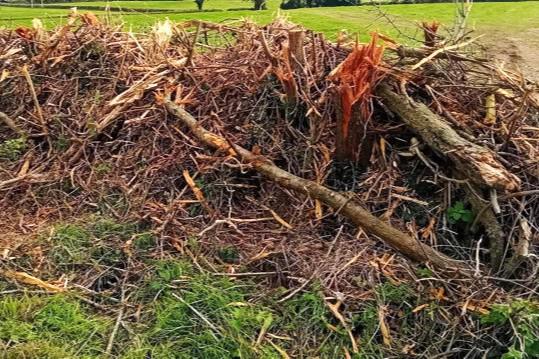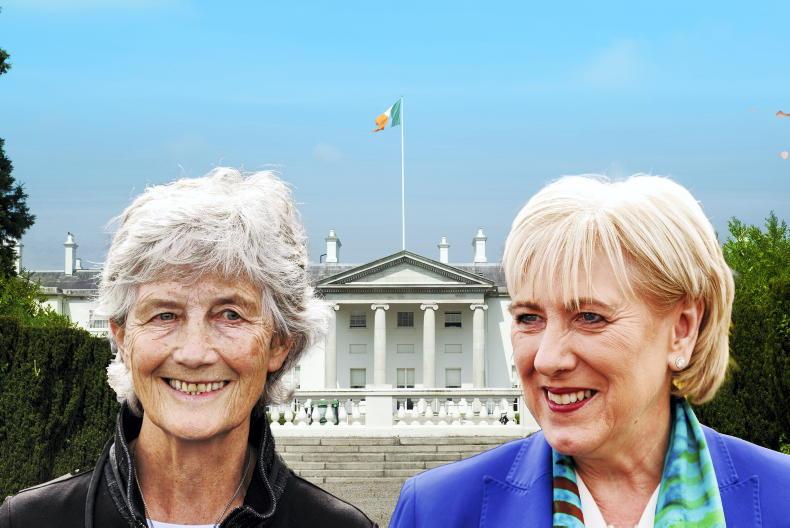In 1991, I was lucky enough to be part of a team that won the Macra All-Ireland debating competition. Our prize was a trip to Florida.
I vividly remember being near the front of the bus going from Miami to Orlando the night we landed. Every few seconds there was an audible thwack as another giant bug hit the windscreen. They looked like slugs with wings, I’d never seen anything like it. It was my first sense that everything is bigger in America.
We didn’t have bugs that size back home in Ireland but we did have insects, and lots of them. Every weekend in the summer I would wash the headlamps because they were caked in insects.
Turning hay with the back window open would see horseflies engage in a non-stop assault on me. By evening, the floor of the cab resembled the battle of the Somme, with my blood mixed with their corpses.
We don’t have that anymore. Of course we have insects, but we don’t have anywhere as many. Anyone who believes that the Citizen’s Assembly on Biodiversity was unnecessary is deluding themselves.
I haven’t looked at the report yet - I’m trying to belatedy get some crops in the ground these days - so I can’t venture much opinion on the findings it contains.
However, I did read my colleague Noel Bardon’s reporting on the issue.
At first glance, the logic of the food export tax would seem to be that producing more food than we need as a nation is a practice to be disincentivised.
I have no idea how the planet feeds itself in such a mindset.
In terms of logic, I also have questions. If we tax food exports, this will reduce farmers’ margins. Remember, we export 90% of our dairy, beef and lamb. How this is expected to produce more sustainable farming is beyond me.
I look forward to seeing the full report and recommendations.
Non-binary choices
Farmers must not to get suckered into a binary debate where more intensive farming is cast in a morality play with extensive organic farming.
Food production is a much more complicated patchwork than that, which needs to be reflected in the range of solutions to the genuine crisis in biodiversity.
Having been slow to accept the reality of the effect modern farming has had on the countryside, we are on the back foot as farmers, explaining and losing.
Hedging my bets
I’ve been thinking of moving a ditch. To clarify, when I say ditch, I mean something above ground.
Around here in Wexford, we call something going down a drain or dyke. The ditch that is there is essentially a clay bank that leaves two fields with crooked ditches and awkward corners.
It isn’t a hedge - there are no bushes or trees on it, nothing except a couple of briars.
Since the beginning of this year, every time a farmer takes out a hedge, they are required to have planted two metres of new hedging for every metre removed.
We have changed ditches before, always planting at least a metre of new hedge for what we removed; the like-for-like rule that previously pertained.
Perhaps the new rule is to discourage farmers from removing hedges at all, but it rankles a little with me.
It’s not because I don’t want to plant more than I remove. We have planted trees in clumps all over the farm.
As a tillage farm, we have an amount of smaller fields, and that’s by choice. We still have some field boundaries where we can plant new hedging, and the cost is well worthwhile for me.
What rankles is that I know many farmers and landowners have flouted those rules and somehow got away with it. And as often happens in Ireland, instead of enforcing the existing rules, the decision is to make the rules tougher.
I call this the persecution of the compliant. The people who try their best to work within the existing rules see them being ratcheted up, while a cohort who ignore the rules get no punishment.
We’re all to blame a bit for this state of affairs.
The Government and departments could work harder to make non-compliant farmers face up to their responsibilities.
And too many of the rest of us have a grudging respect for someone who “gets away with it”. Perhaps it’s a relic of our history as an occupied nation, or the perpetuation of the notion of the loveable rogue, but I’m not a fan.
Are attitudes changing?
This week saw a video of slurry being spread from the road with a rain gun on a wet day going viral.
While the action was utterly inexcusable and has been roundly condemned, I feel some sympathy for the farmer involved on a human level. They are likely to have the book thrown at them, and public interest in this case means it will probably receive media attention as it progresses.
But it’s good that farmers realise this is not acceptable. And neither is unauthorised or out-of-season burning, or sham renting of maps but not land to allow higher stocking rates, or reckless or feckless use of pesticides or chemical fertiliser.
The feeling is that the overwhelming majority of farmers understand their responsibilities as landowners and custodians of the countryside. But it is equally true that the irresponsible and selfish behaviour of a tiny minority sullies the name of our profession.
And one of the results of the insidious undermining of the good name of Irish farming is a proposal to tax food exports to somehow force a better outcome for nature.
If we don’t openly confront the bad apples within farming, we will all suffer in the end.









SHARING OPTIONS